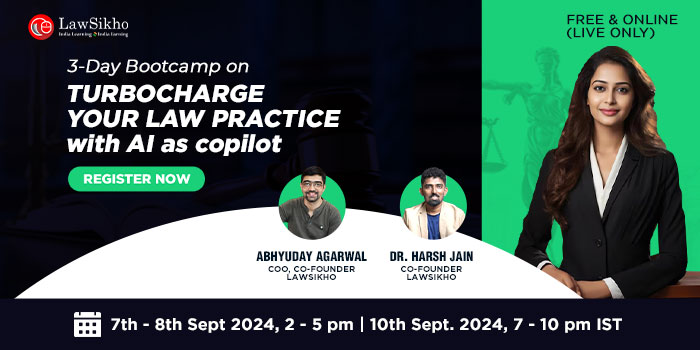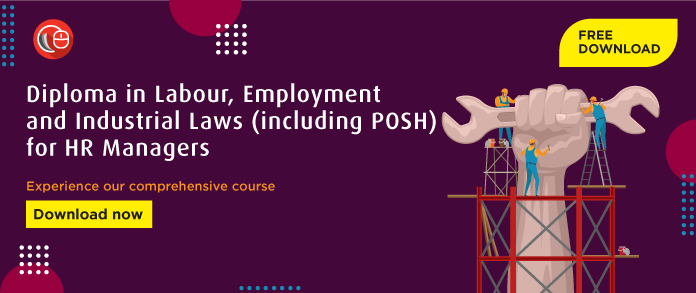

This article is authored by Nidhi Bajaj, of Guru Nanak Dev University, Punjab. In this article, the author has explained the meaning of social contract and has also discussed the theories of social contract propounded by the three political philosophers: Hobbes, Locke and Rousseau.
Table of Contents
A ‘Social contract’ connotes a hypothetical agreement used to explain the origin of society and state. Before the formation of state and government, man used to live in a state of nature. The social contract theorists compared the advantages of an organised government with the advantages enjoyed in the state of nature and reasoned as to why men should accept and obey the government voluntarily. The conclusions of this exercise led to the formation of a social contract setting out the rights and duties of the citizens towards the State. Although the idea of a social contract had been discussed priorly, the concept is predominantly associated with the English philosophers Thomas Hobbes and John Locke and the French Philosopher Jean Jacques Rousseau.

In this article, the author will explain the meaning of the social contract and social contract theories followed by a discussion of the social contract theories propounded by Hobbes, Locke and Rousseau.
A social contract refers to an actual or hypothetical agreement between the ruled or between the ruled and the ruler, defining the rights and duties of each. Individuals being born into a state of nature, by exercising their reason and collective will agreed to form a society and a government. A social contract can also be viewed as a means to escape from the state of nature. Thus, a social contract can be of two forms:
The social contract is based on the express or implied consent of the people to give up some of the freedoms that they enjoyed in the state of nature in exchange for the protection of their remaining rights and the maintenance of social order.
At the outset, social contract theory seeks to explain two things:
Social contract theory deals with the formation of the social contract and gives answers to questions regarding the nature of life before the state came into existence and the reasons or circumstances that led to the formation of the social contract etc.
Life before the coming into existence of organised societies or governments is referred to as the ‘state of nature’. The condition of man and his life in the state of nature is described differently by different political thinkers. Some describe life in the state of nature as blissful and others describe it as brutish and harsh. To overcome the hardships existing in the state of nature, the following two agreements were formed:

Before proceeding with the discussion of social contract theories as propounded by various political philosophers, it is pertinent to note that the purpose of all social contract theories is not the same. Some theories focus on justifying the origin/power of a sovereign, while others deal with the protection of individuals from the oppression of a powerful sovereign.
Thomas Hobbes was the first modern philosopher who put forward a detailed social contract theory. Hobbes describes man’s nature as egoistic and selfish. To him, humans were isolated beings with insatiable desires who continually sought pleasure and avoided pain.
Since humans living in the state of nature were pessimistic and brutish, the state of nature was gloomy and sordid. The only rule that prevailed was “take if you have the power and retain as long as you can”. Men were suspicious and hostile towards each other in the state of nature. There was no law, no notion of right and wrong. Only fraud and force existed. The conditions of life existing in the state of nature made it ill-equipped for civilised pursuits. As long as a man were to live in a state of nature, there could be no society and his life would be short, poor, and solitary.
However, in the state of nature, the man had complete freedom and a natural right to everything including the right to one another’s bodies. According to Hobbes, natural laws existed merely for the fulfilment of individual good. There were 19 natural laws, the most important among them being:
The only way to achieve the goal of attainment of peace, self-preservation and self-protection was to enter into a contract for the establishment of a State. Individuals surrender their powers through a contract to a third party, who was not a party to the contract.
I authorise and give up my Right of Governing myself, to this Man, or this Assembly of men, on this condition, that thou give up thy right to him, and authorise all his actions in like manner.
Thus, the basis of the Hobbesian contract was not common will. It was a contract of each with the other wherein each person agreed to give up his right in favour of a third party in consideration of other persons giving up their rights in the same manner. As a consequence of the contract, a third party(Sovereign) came into existence. The third-party was an artificial person distinct from natural individuals.

The subjects were under an obligation to obey the sovereign because of the following reasons:
Locke’s social contract theory explains that legitimate political authority was derived from the consent of people and such consent could be withdrawn if the freedom of the individual was violated.
Locke conceived men as being free, independent, and equal in the state of nature. He described the state of nature as one of perfect equality where all humans enjoyed the right to life, liberty, and property. Locke’s state of nature was in stark contrast to that of Hobbes. Here, the man was not as brutish and selfish as described by Hobbes. The state of nature was not a state of war but a state of “peace, goodwill, mutual assistance, and preservation”. Locke’s state of nature talks about a pre-political order rather than a pre-social order. In the state of nature, man is governed by the law of nature. God made everything for subsistence and not for waste. Therefore, man had no right to take his own life or the life of others since even human life was given by God as a trust.
According to Locke, the individual was a free and rational being who became a political subject out of his free choice. The purpose behind the formation of civil society was to protect and enlarge freedom. The state of nature was one of equality and liberty but it lacked security. Peace was not secure in the state of nature and was constantly disturbed by the viciousness of some degraded men. The state of nature lacked the following three important elements:
Thus, Locke tried to explain that men consented to the establishment of political authority to ensure greater observance of the laws of nature, to bring impartiality in decision making and implementation of rules, and to secure peace. People entered into the social contract for the protection of their life, liberty, and property.
It can be said that in Lockean theory, there are two aspects to the social contract :
Even after establishing a government, the community retained supreme power, meaning that if the government failed to preserve society or if its performance was not satisfactory, people could take steps to change the government. Thus, the government could be changed, altered, or dissolved legitimately
According to Rousseau, in the state of nature man was solitary but happy, healthy, and free. Human beings were guided by instincts of self-preservation and compassion. Man differed from other animals because he possessed a will and desire for perfectibility. He was innocent and independent and ignorant of any rights, passion, vengeance, interests. Rousseau’s view was that humans were not born with reason. It was a quality that remained dormant until a situation arose for its need. Human beings were happy without reason or thinking. The emergence of reason led to an increase in the wants and needs of humans. As a consequence, man ceased to be happy and his life became miserable and far from peaceful. Rousseau called the departure from the state of nature “a fatal accident”. He has described the state of nature as a golden past that could not be recaptured.
For Rousseau, it was important to study the state of nature because of the following reasons:
As people started living together, individuals realised that they could rely or depend on others in certain matters of mutual interest. Then, as the man started living separately with his family, he discovered love and beauty and started acting rationally rather than instinctively. Small communities developed. Division of labour was introduced. Men started to make discoveries and inventions and in their leisure time, they made comparisons with others. This developed feelings of jealousy, pride, and contempt. Once they started to live in a society, human beings transformed psychologically. On entering society, a man entered into the phase of dependence. The creation of private property and the division of labour generated differences in wealth, power, and status. This interdependence led to inequality. A man who was supposed to become more free ended up in chains by losing his independence. This is why Rosseau called the emergence of society and departure from the state of nature a fatal accident. Civil society came into existence to protect the property of the privileged few. It was formed to protect peace and protect the right to property of those who were lucky enough to have possessions. It converted de facto ownership into rightful ownership and the poor remained dispossessed of any property. However, one thing was clear once civil society emerged there was no going back to the state of nature.
In order to become free, every individual must give up all his rights to the entire community, creating the same conditions for all and thus creating equality. Rousseau talked about the creation of a right society instead of a first society. According to him, men are subject to “general will” which exists for the public good. Consent is the basis for political authority. Force can never be a basis for establishing political authority. Also, society is not a natural occurrence. Man can enter into society(relationships with other men) out of his own will and choice. A higher organisation would be a polity that would look after the general interests of its members. The right kind of society would enhance human freedom. The object of the social contract was to reconcile liberty with authority. Rosseau rejected the idea that the social contract involved the surrender of freedom to a third person.
Rousseau said that “man is born free and is everywhere in chains”. A community that was constituted by all consenting individuals voluntarily submitting to the general will was the solution to his paradox of persons born free, but yet in chains.

While traditional social contract theories deal with the origin of state and society, the modern versions and revivals of social contract theories are not concerned with that. The social contract on which society is currently based emerged as a means to tackle the post-war problems. The social contract must be changed and updated with a change in circumstances. The pandemic that the world witnessed beginning in 2020 and is still witnessing has called for the need for a renewed social contract. The United Nations(UN) in Part II of “Our Common Agenda-Report of the Secretary-General” has proposed the renewal of the social contract. The foundations of the new social contract are as follows:
Thus, the report recognised the importance of the renewal of the social contract between governments and their citizens and within the societies as well. It is time to rebuild trust and embrace a comprehensive vision of human rights.
The above-mentioned social contract theories have been described as hypothetical arrangements to understand and clarify certain political problems. A significant conclusion to be drawn from social contract theories is that law and political order are not natural, but have been created by humans. A social contract is only a means for achieving the end of maximum good and benefit of all individuals in the form of protection of civil liberties, law and order and peace. It is a sort of agreement by people on the laws and rules by which they are to be governed.
Students of Lawsikho courses regularly produce writing assignments and work on practical exercises as a part of their coursework and develop themselves in real-life practical skills.
LawSikho has created a telegram group for exchanging legal knowledge, referrals, and various opportunities. You can click on this link and join:
Follow us on Instagram and subscribe to our YouTube channel for more amazing legal content.